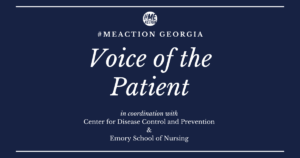The US National Institutes of Health (NIH) has awarded a total of $1.3 million for ME research to three teams led by Drs. Ian Lipkin and Mady Hornig, Nancy Klimas and Maureen Hanson, respectively.
In an unexpected move, the NIH gave $766,000 to Drs. Ian Lipkin and Mady Hornig and their team at the Center for Immunity and Infection at Columbia University, New York on August 14.
Dr. Lipkin, dubbed “the world’s most celebrated virus-hunter” by Discover magazine, has been famously frank about how his previous grant applications for his ME research — but not his other work — had been dealt with by the NIH.
In May 2014, he told journalist Mindy Kitei:
[pullquote align=”full” cite=”” link=”” color=”” class=”” size=””]I have been in competition now twice to get [my ME research] funded, and the people there who reviewed me gave me abysmal scores. And the critiques of my work were unfair, and one of the people who critiqued my work said, in fact, that this is a psychosomatic illness. I was floored. I protested, and for reasons that are obscure to me this same individual wound up back on the study section, and I got a similar unfundable score. Am I upset about this? Absolutely.[/pullquote]
Only four days after the grant was awarded, Cheryl Kitt, the Deputy Director of the Center for Scientific Review at NIH, claimed at the 18 August CFSAC meeting that research funding was low for ME because applications of sufficient quality were not being received.
The grant awarded to Drs. Hornig, Lipkin and their team is for a comparison of ME cases and controls in relation to the bacteria, fungi and viruses (the “microbiome”) in the oropharynx (throat), lower gastrointestinal tract (gut) and blood.
The study will use state-of-the-art methods for microbial surveillance and discovery, with enough participants to ensure a good chance of identifying differences between people with and without ME.
With the $750,000 crowdfunded by patients through the Microbe Discovery Project, this raises the total amount of funds for the microbiome study to over $1.5 million.
Two additional, large NIH grants have been awarded to ME researchers this year, both in April.
Dr Nancy Klimas’s group at the Nova Southeastern University in Florida received $320,000 to compare peripheral blood mononuclear cells in ME patients and healthy controls at three time points: before exercise challenge, at the peak of effort (VO2 max) and four hours after peak effort.
The study will use a genomic approach to identify biomarkers and possible targets for therapy.
Professor Maureen Hanson at Cornell University, New York, received $237,000 to examine energy generation pathways in peripheral blood mononuclear cells and isolated B, T, and NK cells. She will determine whether measures of energy metabolism in the cells correlate with the microbiomes and mitochondrial DNA composition of the ME patients and healthy controls.

#NotJustFatigue Video Series: Interview with Creator Elizabeth Ansell
Over the past year, the #NotJustFatigue website, created by Elizabeth Ansell, releases a 10-part, documentary style, short form video series on different aspects involved in living with ME. Titles of the videos include topics such as: You Have No Idea How Serious This Is, Nobody Believes ME, and It’s Not Hysteria: It’s Sexism. In these





7 thoughts on “NIH awards $766K to Lipkin and Hornig”
And what about Dr Davis? Didn’t he say they told him not even to apply for funds if was going to study ME/CFS?
Excellent news! The NIH is finally coming around and I say let us look to the future. Dr. Davis and the OMF currently have almost $1.5 for their severely ill patients to study biomarkers so he is currently good to go. I think this last CFSAC meeting will render some good results and believe that Dr. Collins is finally getting the message regarding the need for research into the cause(s) of ME/CFS. Some studies need larger numbers (a single study of spinal cord abnormalities included only 10 people, insufficient for research purposes to demonstrate that all ME/CFS patients will show these abnormalities) and some other studies need control (healthy) groups added to the studies, and some need merely to be replicated to show that the initial research can be repeated with the same findings by another group. This is how research works. Research is making progress in searching for what will likely be subgroups within the patient population of ME/CFS but until completed, there can be no treatment options developed. It’s being shown to be an autoimmune, neurologically mediated, cellularly affected low energy metabolsm disease. MM
This is terrific news…so glad to hear it.
Great news! Badly needed.
So , the cat is more obviously out of the bag: The reason for not getting more funds is due to pure prejudice and gross ignorance and possibly spite towards ME. We have had the real test with Ian Lipkin. Big thanks to him for protesting.
Absolutely. I concur. NIH and CDC have been prejudiced for many years. There are those who are completely close-minded to ME, still believing it is a psychosomatic illness. The awards are good news. Let’s hope this small trend will grow.
Going by Prof Lipkin’s comment: here we have a prominent scientist, with a proven track record, being knocked back because someone has an opinion, evidence-free, that ME is psychosomatic. What a way to run science!
I wonder if the NIH ended up overruling the assessment committee to give him the funds?
I suppose, “Do no harm*, does not apply, to Scientist! There should be no squabble or bullshit, when it comes to research in helping the sick!
Comments are closed.